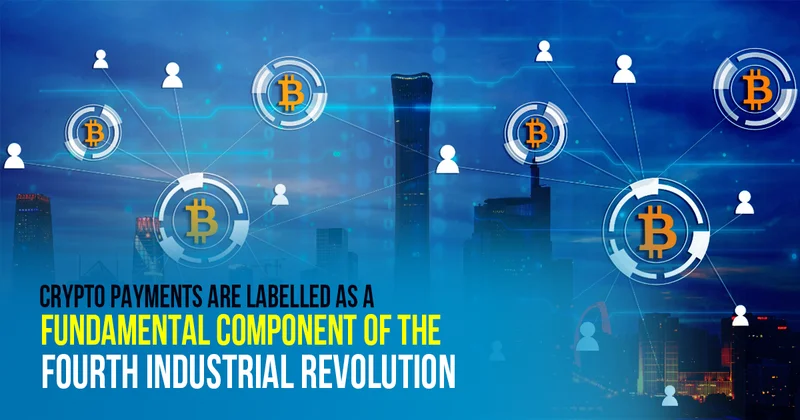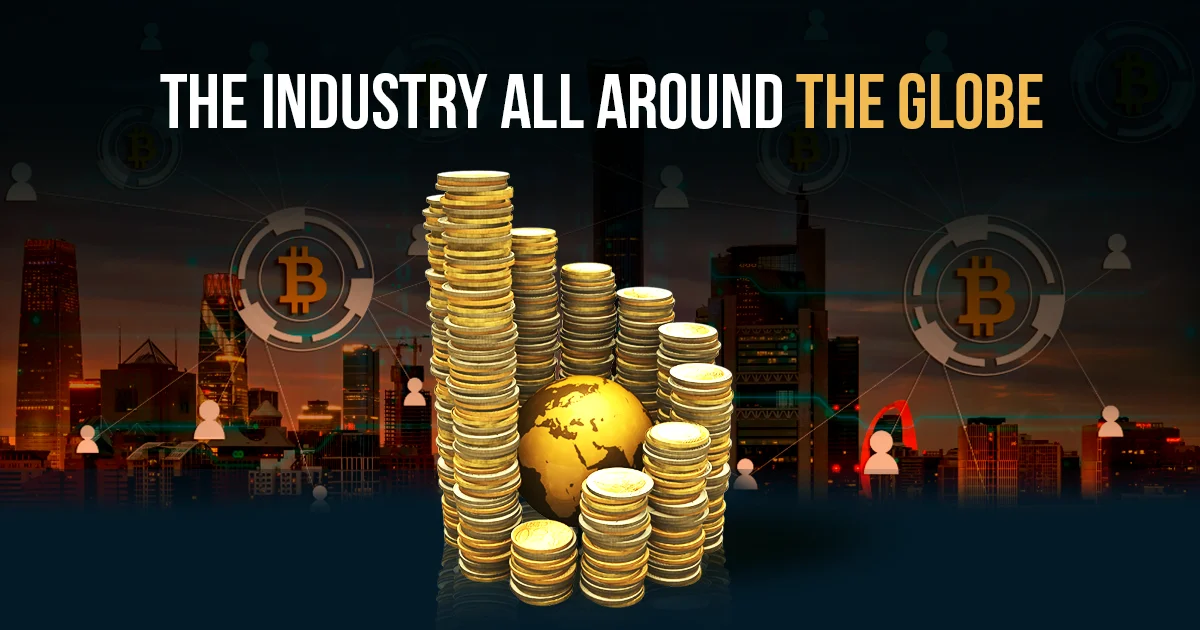

The technology behind cryptocurrencies and crypto payments, blockchain, is compared to technologies such as the steam engine and the internet. These technologies sparked earlier eras of industrial revolutions. As a result, crypto payments are labelled as a fundamental component of the Fourth Industrial Revolution. It can cause disruptions in the current economic and corporate structures and may be of particular use in countries that are still rising on the world stage.
It might be quite some time before robots completely replace human jobs. But it is still best to get a head start on what's to come by investing in the correct technology. The technological developments in the field of crypto payments are already laying the groundwork for the fourth industrial revolution.
The Internet of Things (IoT) industry has seen a lot of growth recently. A few challenges are now being faced by this expanding sector, including the danger posed by quantum computers. The majority of crypto payment processors depend on cryptography to encrypt or decode information using a mix of complicated and sophisticated algorithms. This is accomplished via the use of ciphers.
The incredible technological advancements in blockchain, crypto payments, and AI combined with the digital world are the foundation of the fourth industrial revolution. The swiftness and scope of the fourth industrial revolution are compelling business executives to reevaluate the processes through which their companies produce value. Converging technologies are at the heart of the Fourth Industrial Revolution, which focuses on making computer technology more effective and user-friendly via its application.
It is abundantly evident that crypto payment processors have the potential to address a significant number of the inefficiencies that are now present in our technology. However, to drive the fourth revolution, there has to be an integration of the two technologies. This will then have the ability to transform those technologies that are now quite stable and familiar to us. We currently take these things for granted.
The potential of blockchain to decentralize ownership of data and data sharing is one powerful and immediate method by which blockchain may assist AI. A blockchain is a continuously growing collection of data joined together via encryption. These records are referred to as blocks. Because of this, changing the data is going to be a challenge. There are always new applications being found for blockchain technology. For instance, blockchain is becoming an invaluable tool for the healthcare business since it decentralizes patients' health history and tracks their prescriptions. This has the potential to revolutionize the industry all around the globe.
Through individual ownership and management of data, the data oligopoly that exists now may be susceptible to disruption via blockchain technology. AI developers previously did not have access to such data. They will now be able to take advantage of the enormous number of data sources that will be made available to them due to this development. This indicates that there will also be a data marketplace, which may function as a free market for developers searching for certain sorts of data to use in their projects.
In a similar vein, artificial intelligence (AI) has the potential to advance blockchain technology since some of the most compelling use cases and early-stage applications of blockchain technology are for AI.
Both blockchain and AI are constantly coming up with new ways to improve our technology lives- nevertheless, there is no disputing that both are still very much in the early stage. Despite this, crypto payment gateways are consistently developing new ways to enhance our technological lives.

According to a well-known proverb, change is often unavoidable. Incorporating cutting-edge technologies like blockchain and the Internet of Things is becoming a costly endeavor to disregard. Even if some of these technologies replace human jobs, the overall value proposition is far higher than the jobs expected to be eliminated. Blockchain technology and the Internet of Things have, if anything, made it possible for more individuals all over the globe to participate in the world of the future.
In light of this, it would be preferable for stakeholders to increase their investments in research and development to enhance the potential of the 4IR. At the moment, efforts falling within these categories of technologies have been successful in gaining the backing of veterans of the technology sector and other prominent actors like financial institutions and government bodies. However, given the rate of invention and the prevalence of paradigm-shifting technologies such as quantum computing, there is still a significant distance to go.
When we first got involved with cryptocurrencies, we were really interested in the concept of it as an investment vehicle, in addition to the obvious goal of generating money. By assisting in the fight against fraud and corruption, this Fourth Industrial Revolution may speed up the process of getting us closer to full development. However, the crypto payment gateways are still in their early phases of development. We have understood that cryptocurrency isn't simply there for individuals to earn money off it. The Fourth Industrial Revolution has more to offer than meets the eye.
It is simple to become pessimistic about the potentially transformative effects of blockchain technology at a time like now when an investment bear market has occurred in the cryptocurrency area. However, there is plenty of room to pass. The fourth industrial revolution will be the first significant revolution that will have transitioned from a state-centered technology to another more sophisticated one.
We have seen the larger ramifications throughout the course of the last few years, and particularly now in light of this epidemic. If you had presented the concept of virtual currency 20 years earlier, people would have reacted to it with a great deal more suspicion than they did in 2008. That is more relevant than ever before. It seems that people are becoming more receptive to the concept at this point in time. The soil has been tilled by the Fourth Industrial Revolution, and we are seeing the birth of a future that is abundant in cryptocurrencies right before our own eyes.